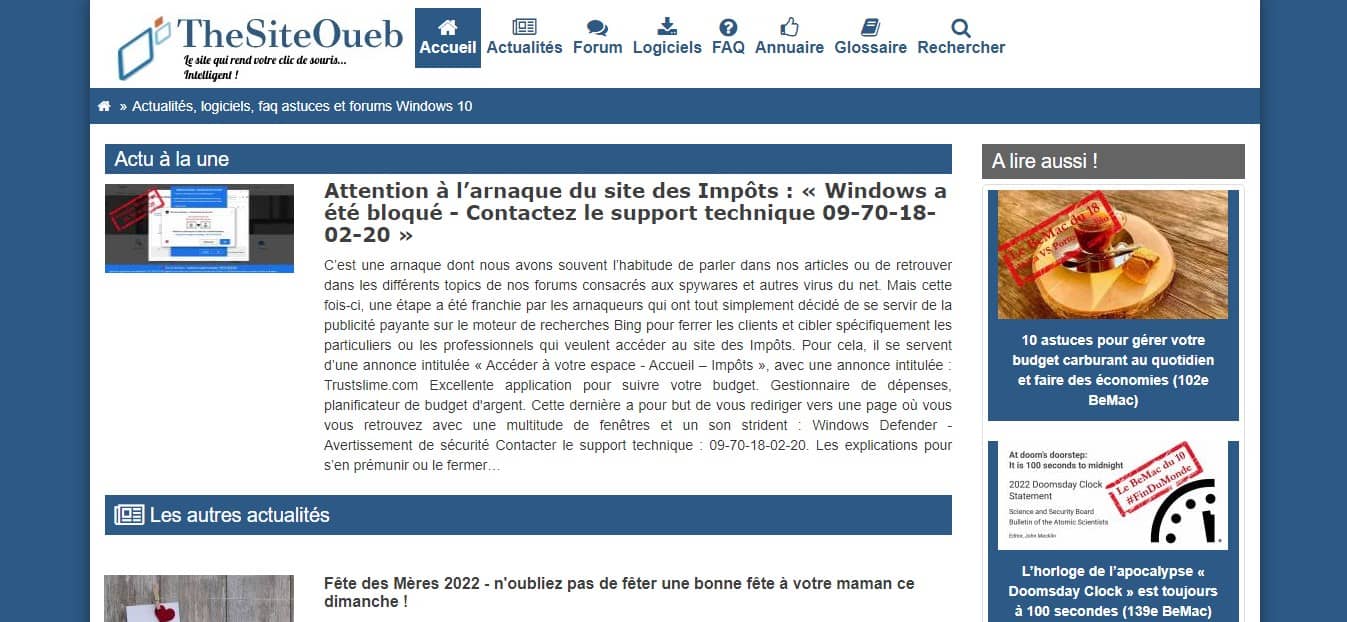9 failles découverte par Sécunia sur Firefox
Publié le
et mis à jour le
Rubrique Software
La toute dernière version, la 1.0.1, est à peine sortie que Sécunia annonce une série de faille sur le navigateur alternatif. Ces failles concerne aussi Mozilla et Thunderbird…

Pour les failles voici leurs descriptions du site de Sécunia (en anglais) :
Si certaines sont corrigées avec la version 1.0.1 de firefox il n’en va pas de même pour Mozilla et Thunderbird qui devront attendre leurs mises à jour.
Comme quoi à l’instar d’Internet Explorer, nul n’est fiable.
Pour voir le site officiel de la fondation à propos de ces failles
http://www.mozilla.org/security/announce/
(Source Sécunia.com)
1) The vulnerability is caused due to the temporary plugin directory being created insecurely. This can be exploited via symlink attacks to delete arbitrary directories with the privileges of the user running Mozilla or Firefox.
2) The problem is that an inactive tab can launch an HTTP authentication prompt, which appears to be displayed by a website in another tab. This may be exploited to trick a user into entering some sensitive information (e.g. user credentials).
This is similar to:
SA12712
3) An error in the handling of shortcut files (.lnk) can be exploited to overwrite arbitrary files by tricking a user into downloading a shortcut file twice.
4) The problem is that a XML document can include XSLT stylesheets from arbitrary sites, which may be exploited to disclose some sensitive information.
5) An error in the form fill feature (autocomplete) allows reading suggested values before they are chosen. This can be exploited to disclose some potentially sensitive input by tricking a user into arrowing through some autocompleted values.
6) A memory handling error in Mozilla string classes may allow overwriting of memory if the browser runs out of memory during string growth. This can potentially be exploited to execute arbitrary code.
7) The problem is that the hostname can be obfuscated in the installation confirmation dialog by including an overly long username and password. This can be exploited to trick users into accepting installations from untrusted sources.
Successful exploitation requires that the malicious website is allowed to request installations.
8) It is possible to cause a heap overflow due to an error when converting malformed UTF8 character sequences to Unicode. This may be exploited to cause a heap overflow and execute arbitrary code, however, general web content is not converted using the vulnerable code.
9) Various errors make it possible to show the "secure site" lock icon with certificate information belonging to a different site.
Si certaines sont corrigées avec la version 1.0.1 de firefox il n’en va pas de même pour Mozilla et Thunderbird qui devront attendre leurs mises à jour.
Comme quoi à l’instar d’Internet Explorer, nul n’est fiable.
Pour voir le site officiel de la fondation à propos de ces failles
http://www.mozilla.org/security/announce/
(Source Sécunia.com)












